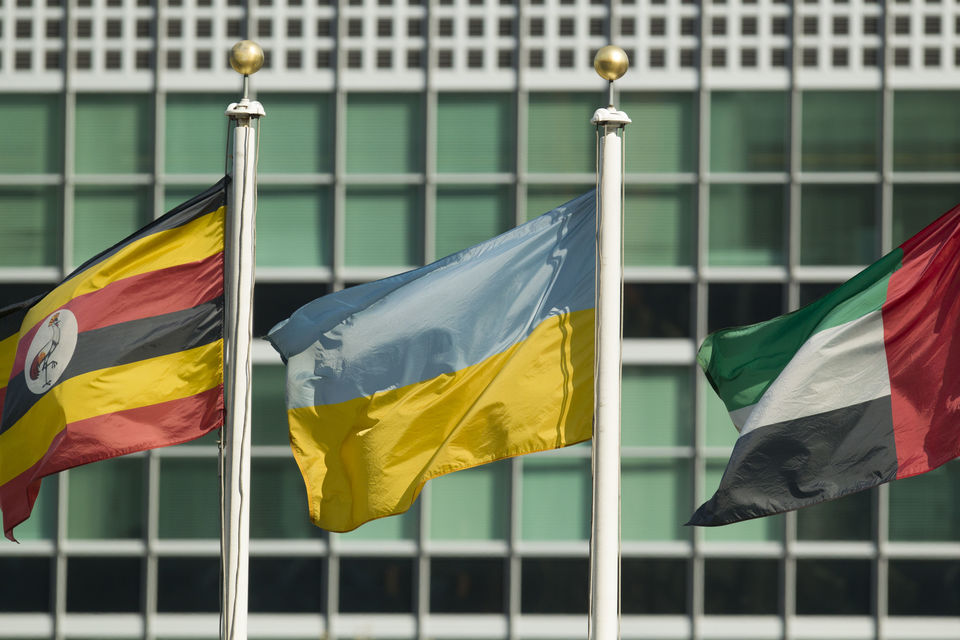Explanation of vote by the delegation of Ukraine before the vote at the UNGA Committee meeting

Mister Chair,
The delegation of Ukraine would like to make a statement to explain its vote before the vote on the resolution.
My delegation has a longstanding position and consistently brings to the kind attention of the Committee that over 70 years ago Ukrainians sacrificed themselves and made an enormous contribution to the victory over Nazism by exemplary heroism in the struggle for the liberation of their native soil and countries of Europe. An extremely high price had been paid as over 8 million of Ukrainians (and this is a conservative figure) lost their lives in the course of the Second World War.
In this regard, we reaffirm our strongest condemnation of all forms of Nazism, neo-Nazism and other practices fueling contemporary forms of racism, racial discrimination, xenophobia and related intolerance.
Although we believe that history as such is beyond the scope of the mandate of the Third Committee and should be left to historians, we would like to reiterate our consistent and longstanding position that this draft resolution has nothing in common with the fight against Nazism, neo-Nazism and other forms of intolerance. Rather we are witnessing how the penholder of the draft resolution manipulates with the history, endeavors to monopolize the victory over Nazism and twist the essence of the Nuremberg Tribunal in pursuance of one’s aggressive political interests.
The secret Molotov-Ribbentrop Pact as of 23 August 1939 delineated the spheres of interest between the Nazi regime and USSR under communist rule and heralded further Europe’s division for decades. This pact led to aggression and occupation, unprecedented human suffering and crimes against humanity. Let me remind what those two regimes had in common – there was neither democracy nor respect for human rights. Human rights violations and abuses give rise to authoritarianism, which often constitutes a menace to peace and serve as a trigger for interference in the internal affairs of sovereign states and aggression against them. Crackdown on democracy in Russia itself and Russia’s ongoing aggression against Ukraine prove: this interlink is valid nowadays as then.
We continue to strongly support the importance of condemning totalitarian regimes and honoring all their victims, in particular the memory of those who perished from the Holocaust, as well as from artificially created genocide, one of the most horrific man-made tragedies in modern history – Holodomor (Famine) of 1932-33 in Ukraine. It was organized by the Soviet totalitarian regime, on the orders of dictator Stalin, whose memory is now glorified in Russia. The dictator who publicly addressed Nazi leaders as friends and described that friendship as “cemented by blood”. The dictator who has the same responsibility for triggering the Second World War as the Nazi regime.
In the course of the negotiations, Ukraine applied a balanced, impartial and unbiased approach proposing a number of edits to the draft. We very much regret that none of our suggestions had been included to the draft resolution and this impartial approach, based on the historical documents, was rejected or ignored by the delegation of the Russian Federation.
Mister Chair,
Ukraine condemns this cynical attempt of the Russian Federation to present itself as a champion of combating Nazism and neo-Nazism while glorifying today Stalinism, which committed the same crimes against entire nations.
We reiterate our deep concern with worrying developments taking place against the backdrop of unprecedented rise of radicalism, hatred, enmity, aggressive nationalism, neo-Nazism and xenophobic manifestations in the Russian Federation, especially fueled by state-owned media outlets, as well as extended support to numerous authoritarian regimes. Moreover, series of scandals reveal that Moscow tries to establish connections with modern far-right political forces across the continent and beyond, believing that having such allies would help the Kremlin to extend its geopolitical influence.
It is not a commemoration of our common victory over Nazism in the Second World War or zero-tolerance to the modern manifestations of this inhumane ideology that prompt Russia to submit such a draft. It is an attempt to hide its responsibility for crimes and violations, stemming from its aggression against Ukraine and other neighboring countries, behind the references to the above matter.
Bearing in mind the propaganda motives of the resolution, Ukraine will vote “against” and encourage all delegations to vote likewise.
Thank you.
